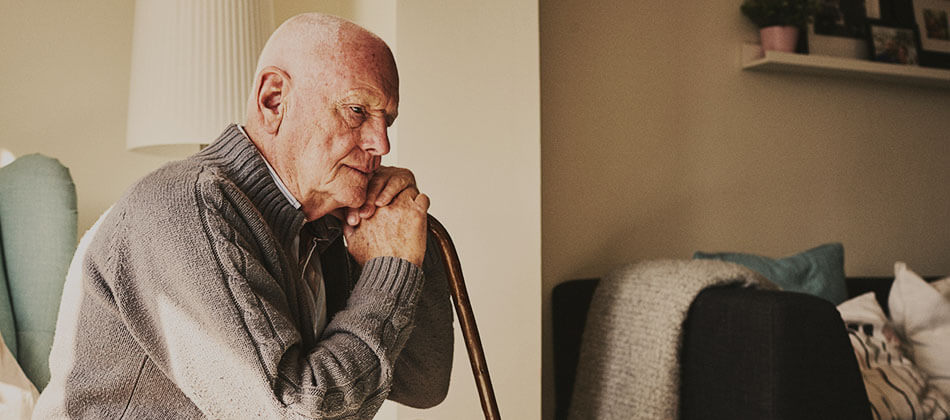CHICAGO, IL – Around 1 in 6 people ages 60 and older experience some form of abuse in community settings during the past year according to the World Health Organization (WHO). Nursing home abuse may be as widespread in the community as child abuse as some evidence suggests.
Elder abuse is a single or repeated act, or lack of appropriate action, occurring within any relationship where there is an expectation of trust which causes harm or distrust to an elderly individual. This type of violence is a violation of human rights and includes physical, sexual, psychological, and emotional abuse; financial abuse; abandonment; neglect; and serious loss of dignity and respect.
Elder abuse has been on ongoing public health problem for years. A 2017 showed people in 28 countries from diverse regions, including 12 low- and middle-income countries, estimated that over the last year, nearly 16% of people 60 and older were subject to some form of abuse.
Elderly individuals are more vulnerable to becoming a victim of abuse if they suffer from chronic diseases or suffer from a physical or cognitive impairment.
Abusive acts in long-term care facilities may include physically restraining a resident; depriving them of dignity (for example, leaving them in soiled clothing), and choice over daily affairs; intentionally providing insufficient care (like allowing them to develop bed sores); over and under-medicating and withholding medication from residents; and emotional neglect and abuse.
Elder abuse can lead to physical injuries – ranging from minor scratches to broken bones and disabling injuries. Sometimes injuries can cause long-lasting, psychological consequences such as depression or anxiety. A study by WHO found that victims of elder abuse are twice more likely to die prematurely than people who are not victims of elder abuse.
Risk Factors
Risk factors may increase the potential for your loved one to become a victim of elder abuse that can be identified at individual, relationship, community, and socio-cultural levels.
Individuals
Risks at the individual level include poor physical health and mental health of the victim, and mental disorders and alcohol or substance abuse in the abuser. Another individual factor which may increase the chance of abuse includes the gender of the victim and if they live in a shared living situation. Older men have the same risk of abuse to women; however, in some cultures where women have inferior social status, elderly women are at a higher risk of neglect and financial abuse when they are widowed. Women may also be a higher risk of more persistent and severe forms of abuse and neglect.
Relationship
A shared living situation is a risk factor for elder abuse. An abuser’s dependency on the older person (mostly financial) also increases the risk of abuse. In some situations, a history of poor family relationships may worsen because of stress when the older person becomes more care dependent.
Community
Social isolation of caregivers and older persons, and ensuing the lack of social support, is a significant risk factor for elder abuse. Many elder individuals are isolated because of loss of physical or mental capacity.
Socio-Cultural
Socio-cultural factors that may affect the risk of elder abuse include:
- Erosions of the bonds between generations of a family
- Ageist stereotypes where older adults are depicted as frail, weak, and dependent
- Systems of inheritance and land rights, affecting the distribution of power and material goods within a family
- Migration of young couples, leaving older parents alone in societies where older people were traditionally cared for by their offspring
- Lack of funds to pay for care
Within institutions, abuse is more likely to occur where:
- Standards for health care, welfare services, and care facilities for elder persons are low
- Staff is poorly trained, remunerated, and overworked
- Physical environment is deficient
- Policies operate in the interest of the institution rather than the residents
Preventing Elder Abuse
Many strategies have been implemented to prevent elder abuse and to act against it. Interventions have been implemented to prevent elder abuse including:
- Public and professional awareness campaigns
- Screening (of potential victims and abusers)
- School-based intergenerational programs
- Caregiver support interventions (including stress management and respite care)
- Residential care policies to define and improve standards of care
- Caregiver training on dementia
Efforts to respond to and prevent further abuse include interventions such as:
- Mandatory reporting of abuse to authorities
- Self-help groups
- Safe-houses and emergency shelters
- Psychological programs for abusers
- Helplines to provide information and referrals
- Caregiver support interventions
Multiple sectors and interdisciplinary collaborations can contribute to reducing elder abuse, including social welfare sector, the education sector, and health sector.
Social welfare sectors can contribute through the provision of legal, financial, and housing support; education sectors through public education and awareness campaigns; and health sectors through the detection and treatment of victims by primary health care providers.
Contact a Nursing Home Abuse Attorney in Chicago, Illinois
If you believe your loved one is a victim of elder abuse, please call our experienced nursing home abuse attorneys at Dinizulu Law Group. Our skilled attorneys have the knowledge and resources to bring justice for your loved one. Call our firm today for a free consultation at (312) 384-1920 or visit our website for more information.



